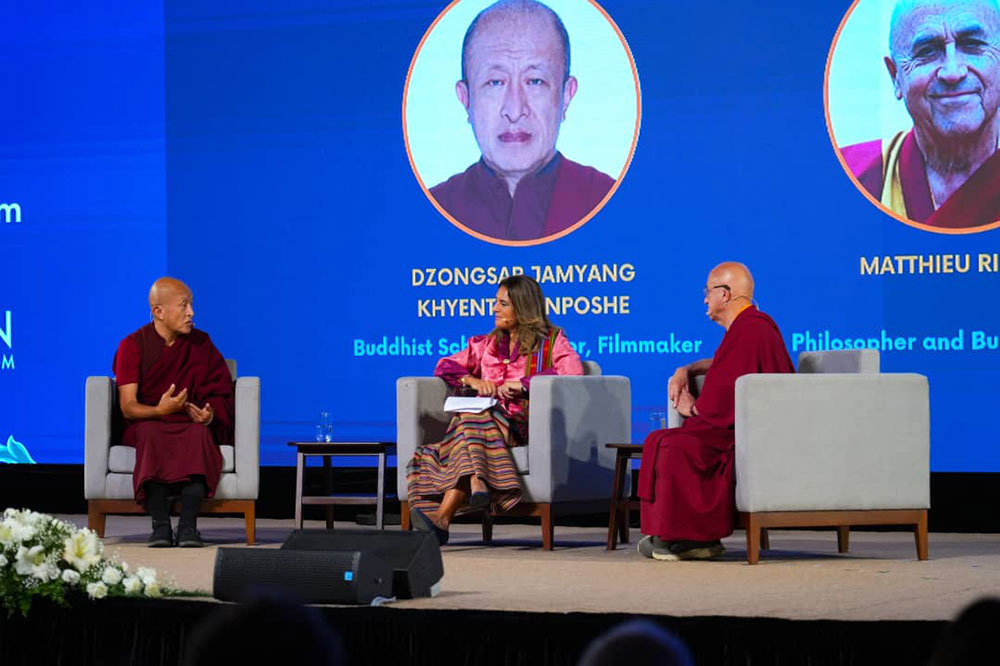Thinley Namgay
The essence of mindfulness lies in recognising that one possesses a mind—a realisation that many overlook.
Dzongsar Jamyang Khyentse Rinpoche, a renowned Buddhist scholar, author, and filmmaker, shared this insight during the first session of the Bhutan Innovation Forum. Matthieu Ricard, a philosopher and Buddhist monk, joined the conversation.
Rinpoche recounted a personal story involving his root Guru, Dilgo Khyentse Rinpoche, who once asked him whether he had a mind. Although Rinpoche answered affirmatively, he was then prompted to consider the location of that mind. This anecdote highlighted a common truth: while everyone has a mind, many fail to truly acknowledge it.
While discussing mindfulness within Buddhism, Rinpoche expressed concern that the concept has been heavily diluted and misinterpreted. “When we talk about mindfulness, we must also address the mind. However, there seems to be a lack of a universally accepted understanding of the mind between the West and East, or among scientists and Buddhists.”
He emphasised that mindfulness is not the ultimate goal of Buddhism but rather a means to an end. “If being mindful all the time is the ultimate aim, it doesn’t sound very enjoyable, does it?” he remarked.
According to Rinpoche, paying attention to the mind without ignoring it is foundational to mindfulness.
Matthieu Ricard defined mindfulness as the awareness and non-judgmental attention to the present moment. He said that in Buddhism, mindfulness is inherently tied to ethics. It involves being cognizant of one’s mental state and how it aligns with Buddha’s teachings.
He highlighted the importance of mindfulness in applying antidotes—such as patience against excitement, benevolence against hatred, and detachment against craving. “Becoming a good human being should be everyone’s life goal,” he said.
On the subject of compassion, Rinpoche suggested that it is often synonymous with mindfulness. He explained that Buddhism entails a systematic training of the mind, stating, “In Buddhism, the mind is the Buddha, and realising this is what we call liberation.”
Rinpoche stressed the importance of recognising not only one’s own mind but also the minds of others, which fosters empathy. “When we realise this, we understand that others have their own opinions and perspectives. Empathy is essentially 99 percent of compassion,” he said.
On the role of compassion in the 21st century, Matthieu Ricard said that altruism and compassion are beneficial in both the short and long term, for oneself and for others.
He said that most of the major issues in the world arise from a lack of altruism and compassion.


